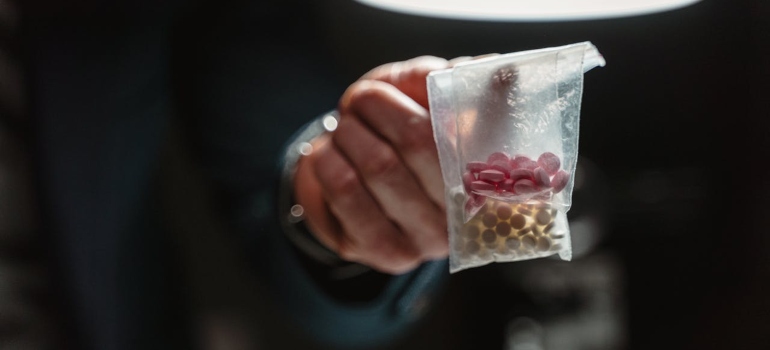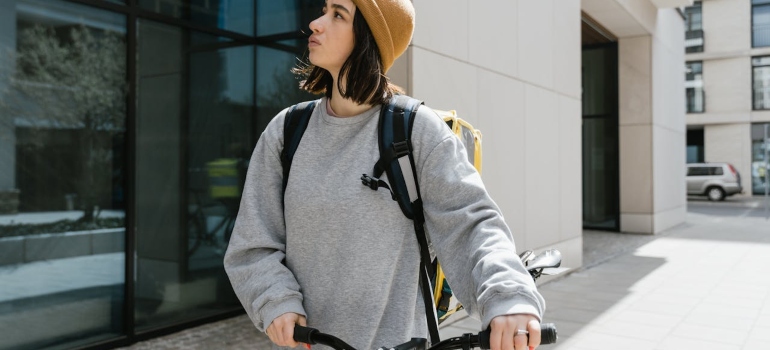Addiction treatment in West Virginia comprises both inpatient and outpatient rehabilitation programs, each offering a distinct approach to aiding individuals in their journey to recovery. Inpatient rehab facilities immerse participants in a highly structured environment, fostering a comprehensive healing process. Also, addiction treatment centers in West Virginia offer outpatient programs that extend support while allowing individuals to maintain their daily responsibilities. We will explore the characteristics and factors influencing the inpatient and outpatient rehab success rates in WV, along with the challenges they face and opportunities for enhancement.
Drug Addiction Problem in West Virginia
Drug addiction in West Virginia has become a widespread problem affecting families, communities, and the state’s resources. Many people in West Virginia struggle with substances like opioids, methamphetamine, and prescription drugs, which are readily available in some areas. This accessibility, combined with economic hardships, has fueled addiction across all age groups and backgrounds. The impact of addiction goes beyond individual lives; it strains healthcare services, law enforcement, and community support systems.

The alarming 1,275 verified overdoses in 2020 serve as an example of West Virginia’s significant drug addiction epidemic. Also, substance use disorder relapse rates are still high, ranging from 40% to 60% in the USA. This crisis emphasizes how urgently comprehensive addiction treatment options are needed. Both inpatient and outpatient approaches are necessary for addressing West Virginia’s addiction crisis. They offer tailored support to individuals based on their unique circumstances and the severity of their addiction.
Inpatient vs. Outpatient Rehabilitation Programs in WV: Choosing the Right Path to Recovery
West Virginia offers a variety of options for individuals seeking addiction recovery, including both inpatient and outpatient rehabilitation. Each has unique benefits, addressing different levels of support, structure, and flexibility to help patients overcome substance abuse. After two years, up to 90% of those who receive support are less likely to take drugs than those who do not. This guide compares the two, examining the environment, therapeutic options, and factors that contribute to success in each type of program.
Environment and Daily Structure in Rehab
A stable environment and structured routine are important factors in effective addiction therapy in WV. Both inpatient and outpatient programs offer distinct approaches to daily organization and surroundings to suit varying needs.
- Inpatient: Inpatient rehab, often provided by a residential treatment center West Virginia, offers a structured environment where patients reside within the facility for the program’s duration. This setup removes distractions and outside influences, allowing patients to focus solely on their recovery. Days are filled with scheduled therapy sessions, activities, and wellness practices designed to disrupt addictive patterns.
- Outpatient: Outpatient rehab offers more flexibility for individuals who need to balance treatment with daily responsibilities. Patients attend therapy sessions at scheduled times and return home afterward. This allows them to maintain routines like work or family care. This type of program suits those with a supportive home environment and a strong commitment to their recovery.

Level of Supervision and Accountability
The degree of supervision and daily accountability varies between inpatient and outpatient programs, influencing the types of individuals who might benefit most from each.
Inpatient rehab provides continuous supervision by medical professionals and addiction specialists. This 24/7 support ensures patients are safe and that any challenges or setbacks can be addressed immediately. Patients are accountable to the program’s structured daily routine, which promotes commitment to sobriety and eliminates outside temptations.
Outpatient programs do not offer round-the-clock supervision. Instead, patients are encouraged to take responsibility for their recovery journey, attending regular sessions while living at home. While outpatient rehab doesn’t provide direct supervision, patients are held accountable by attending scheduled therapy sessions. This setup requires a stable living environment and personal commitment to succeed.
Detox Support and Transition of Care
Detox is an important first step in addiction recovery, and each type of rehab offers different levels of support during this phase.
Inpatient rehab typically includes a medically supervised detox phase. Medical staff support patients through withdrawal, offering a safer environment for individuals with severe dependencies. Inpatient facilities focus on managing withdrawal symptoms and preparing patients for the next steps in their recovery. This phase can be especially beneficial in a residential treatment center in West Virginia, where a dedicated team oversees patient safety throughout detox.
Outpatient rehab does not usually include detox services. Instead, these programs are often designed as part of a broader recovery journey for individuals who may have already completed detox or those with less severe dependencies. Outpatient programs focus on continuity of care, helping patients reintegrate into daily life while maintaining sobriety and practicing relapse prevention techniques.
Types of Therapy and Peer Support Networks
Therapeutic options and access to support networks are integral to the rehabilitation process. Both inpatient and outpatient programs offer individualized, group and holistic therapy for addiction, though they all differ in their approach.

Inpatient rehab provides a range of therapies tailored to each individual, including individual therapy for addiction and group therapy. Many inpatient centers also offer holistic therapy, incorporating approaches like meditation, art therapy, and fitness to address the emotional, psychological, and physical aspects of recovery. Patients benefit from a community of peers facing similar challenges, fostering motivation and accountability within a supportive environment.
Outpatient programs also provide a variety of therapies, such as individual and family therapy, but with the added flexibility of attending sessions around one’s daily schedule. Group therapy for addiction is a central component, allowing patients to connect with others who understand their struggles. This access to a support network and the ability to maintain close connections with friends and family helps reinforce patients’ commitment to recovery.
Success Factors: Comparing Inpatient and Outpatient Rehab
Certain factors contribute to the effectiveness of both inpatient and outpatient rehab. Each approach has specific elements that can improve success rates based on individual circumstances.
- Inpatient Success Factors: The structured, immersive nature of inpatient rehab is particularly beneficial for individuals who need to focus solely on their recovery. This approach limits exposure to triggers, offers immediate support from trained professionals, and creates a community of peers who motivate each other. The comprehensive care provided by a residential treatment center in West Virginia can lead to more positive outcomes for those who require intense, focused treatment.
- Outpatient Success Factors: Outpatient rehab relies on patient motivation, a supportive home environment, and consistent attendance. Success in outpatient programs often comes from applying relapse prevention strategies in real-life situations. Access to family support, reliable transportation, and the flexibility to handle responsibilities while attending an intensive outpatient program West Virginia are important factors that contribute to successful recovery.
Inpatient and Outpatient Rehab Success Rates in WV Comparison
Comparing inpatient and outpatient rehab success rates in WV can help you make an informed decision about the approach you need to reach long-lasting recovery.

Inpatient Rehab Success Rates in WV
In West Virginia, inpatient rehabilitation programs have shown promising success rates in helping individuals overcome substance abuse issues. Generally, for patients who stay in treatment for at least 90 days or finish programs with a scheduled length of fewer than 90 days, the success rate is around 60%. While it’s important to note that success rates can vary depending on several factors, including the severity of addiction, the commitment of the individual, and the specific program’s quality, a general overview of success rates can provide valuable insights:
- Long-term sobriety: Many individuals who complete inpatient rehab programs in the state have achieved long-term sobriety, often defined as remaining substance-free for one year or more after treatment. This is a critical measure of success as it demonstrates sustained recovery.
- Reduction in relapse: Inpatient rehab has been effective in reducing the risk of relapse compared to attempting recovery without professional support. The structured environment and comprehensive treatment modalities contribute to this reduction.
- Improved quality of life: Success in inpatient rehab is about achieving sobriety and improving overall quality of life. Patients often report better mental and physical health, improved relationships, and increased employability after treatment.
- Higher engagement in aftercare: Inpatient rehab programs often facilitate a smoother transition into aftercare programs. This can further support individuals in maintaining their recovery. Higher engagement in aftercare leads to better success rates.
Outpatient Rehab Success Rates in WV
Outpatient rehabilitation programs in West Virginia offer a different approach to addiction treatment. It focuses on flexibility and integration into daily life. Here is an overview of the success rates of outpatient rehab in the state:
- Sustained recovery: Many individuals who complete outpatient rehab programs achieve sustained recovery, maintaining sobriety for extended periods. We often measure success in outpatient rehab by the ability to stay substance-free and avoid relapse.
- Lower relapse rates: While outpatient rehab may have slightly lower success rates compared to inpatient programs, it still offers a valuable means of reducing relapse risk and helping individuals maintain their recovery.
- Integration into daily life: Success in outpatient rehab is closely tied to the individual’s ability to integrate treatment into their daily life effectively. This approach allows patients to learn and practice coping strategies while facing real-life challenges.
- Supportive environment: Family and social support are essential factors in outpatient rehab success. Patients who have a strong support system and actively engage with their treatment tend to have better outcomes. 17% of Americans in recovery could recover with the help of support programs.

Challenges and Opportunities of Inpatient and Outpatient Rehab in WV
There are challenges and opportunities associated with each type of rehab. Challenges of each type are:
- Inpatient: Reintegrating into everyday life after completing an inpatient rehab program can be challenging. Individuals may be tempted to return to old habits, encounter triggers, or struggle to adapt to a changed environment.
- Outpatient: Outpatient rehab offers flexibility, but it also presents the challenge of avoiding triggers and maintaining sobriety while being exposed to the same environments and influences that contributed to addiction in the first place.
On the other hand, both approaches offer the following opportunities for improvement of inpatient and outpatient rehab success rates in WV:
- Inpatient: To address the reintegration challenges, inpatient rehab programs can focus on improving aftercare planning. This includes developing comprehensive strategies to support individuals as they transition back into their regular lives. This may involve connecting them with local support groups, continued therapy, and life skills training.
- Outpatient: Outpatient programs can enhance their effectiveness by implementing structured routines and accountability measures for patients. This might involve creating more rigorous schedules, regular check-ins, and increased accountability to reduce the risk of relapse when patients are outside the treatment environment.
Partial Hospitalization Program – The Middle Ground
People seeking addiction treatment have the option to choose a partial hospitalization program West Virginia. A partial hospitalization program offers a structured and intensive level of care. It typically involves daily therapy sessions and medical oversight while still allowing participants to return home in the evenings. This option provides a middle ground between inpatient and outpatient care, catering to varying needs and schedules. Furthermore, it ensures that individuals can access the level of support that suits their unique circumstances.

Achieve Successful Recovery with Harmony Ridge
Inpatient facilities offer structured environments, 24/7 supervision, and intensive treatment, yielding high success rates characterized by sustained sobriety and improved quality of life. In contrast, outpatient programs provide flexibility, diverse treatment options, and an option for integrating recovery into daily life, resulting in steady progress and lower relapse rates. Success in both settings depends on individual motivation, the quality of therapeutic interventions, and access to comprehensive aftercare. Ultimately, the inpatient and outpatient rehab success rates in WV are a testament to the resilience of individuals committed to their recovery, the dedication of healthcare professionals, and the continuous evolution of treatment approaches to better serve those in need.
References:
https://dhhr.wv.gov/News/2021/Pages/West-Virginia-Experiences-Increase-in-Overdose-Deaths;-Health-Officials-Emphasize-Resources.aspx
Statistics on Drug Addiction Treatment and Recovery Rates in the US



